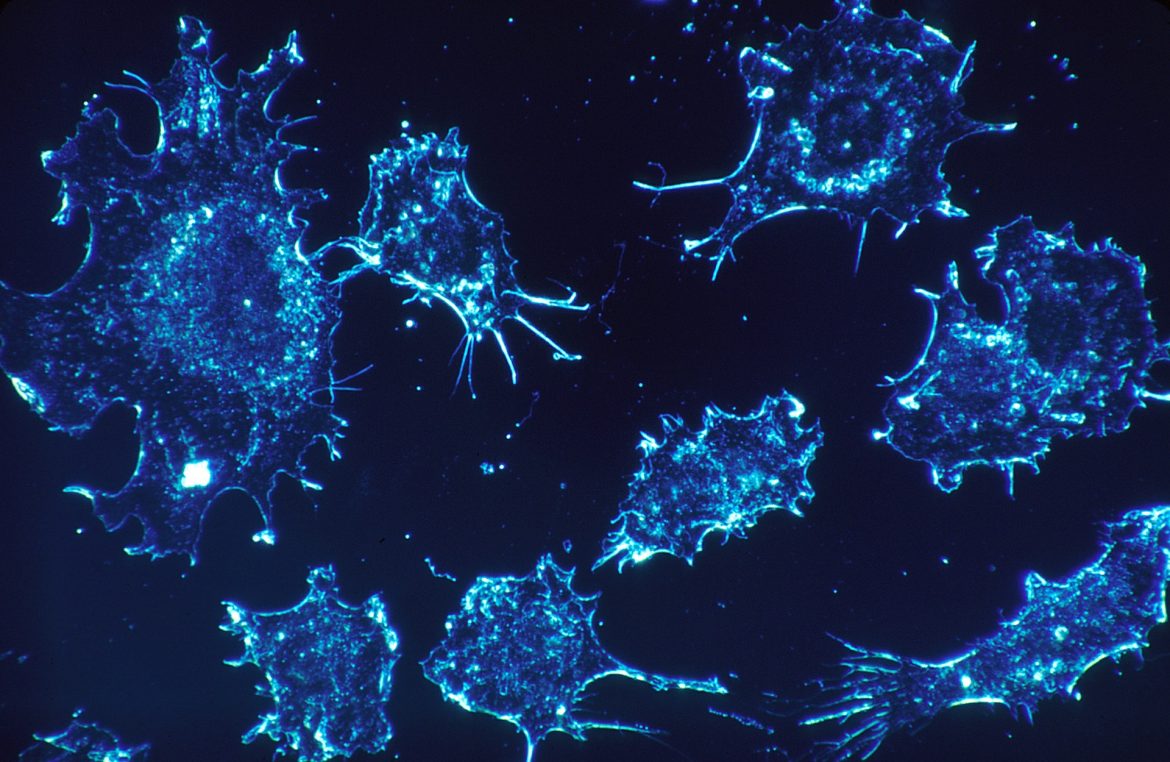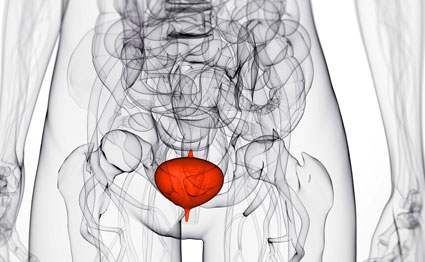
Cancer of the prostate and bladder
Cancer of the prostate
It used to be known as the cancer of the aged male as it only seemed to affect older men. This is probably due to the fact that cancer of the prostate develops slowly and many men will reach the end of their lives without ever knowing they had cancer.
The symptoms that accompany prostate cancer are similar to those of BPH. If the cancer spreads the patient will feel more tired, less appetite and lose weight. He may also experience pain in his back and bones.
As the prostate is difficult to find and impossible to visualize it is very important that men visit their family doctor as soon as they notice something wrong. Prostate cancer can be diagnosed in a physical check-up, the doctor will carry out a rectal exam (the doctor will introduce a finger in the rectum to confirm if there are any changes) or he will do an ultrasound or a biopsy.
Often the doctor will suspect the possibility of prostate cancer if the levels of PSA (a prostate specific antigen) in a man's blood are abnormal , by which the specific protein levels are determined. The choice of treatment for prostate cancer will depend to a great extent on how far the cancer has developed. If the cancer has not spread beyond the prostate the option of surgery will be considered. There are three different types of surgery for this type of cancer ranging from open surgery, laparoscopic and robotic, even surgery through the urethra. The choice of surgical technique will depend on each individual case.
The treatment of this type of cancer need not be radical in all cases. For instance, prostate cancer seems to respond well to hormonal treatments, either through the administration of feminine estrogen hormones or by blocking of the male sexual hormone testosterone using hormone suppressing drugs.
Radiation therapy can be used in some cases as a complementary treatment to surgery but can also be used without surgery. Once again the choice of therapy will be made on an individual basis and tailored to each patient. It can be applied externally or internally through the implantation of radioactive seeds in the prostate.
In those cases where the cancer has spread to other organs the doctor will probably propose chemotherapy and hormonal treatments. In elder patients with other serious medical conditions the doctor may decide not do do anything and monitor how the cancer develops, in many cases the development is very slow and the patient may end up dying from a different medical problem than that of prostate cancer. In other patients of this type only hormonal treatment may be recommended.
Cancer of the bladder
For almost 40% of patients with bladder cancers smoking is the biggest risk factor. It is a common type of cancer eighth most prevalent but for the majority it is diagnosed in its early stages which is vital for survival. Generally this type of cancer is detected by the appearance of blood in the patients urine acompanied by pain when urinating and occasionally pelvic pain.
If the tumour is detected in its early stages, treatment with a combination of radiotherapy and chemotherapy should be enough to eliminate it. Some studies show that when this treatment is not successful but is applied before surgery it can help to reduce the risk of a relapse. Generally speaking the treatment of bladder cancer includes a cystectomy, a surgical procedure through which the bladder is partially or completely removed. In some cases this surgery is not invasive and is done via the urethra. The treatment is completed with chemotherapy, even if it is not necessary, depending on the stage of development of the disease. Chemotherapy is also the treatment option for those patients whose disease is at an advanced stage or who are not suitable for surgery. In these cases the objective of the treatment is to reduce the symptoms and increase survival time.



